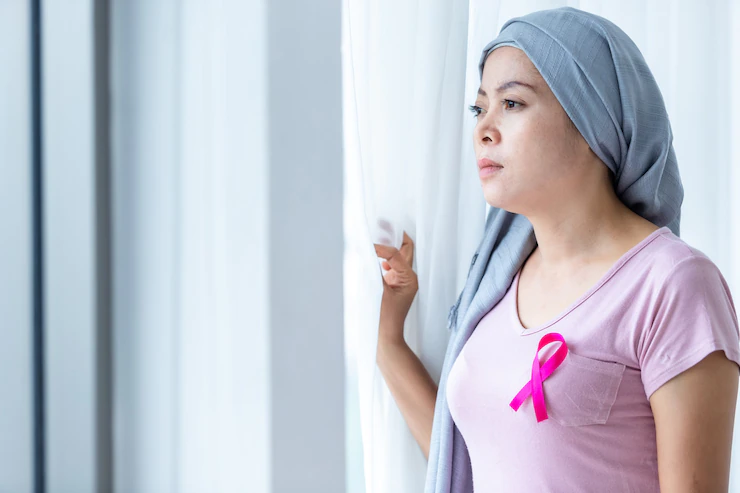4 Self Care Tips for Cancer Survivors
Cancer and its treatment significantly affect a person’s physical, psychological, and emotional health. It allows you to live the life you have always dreamed of leading, but your life also changes significantly after cancer treatment.
Your body goes through so many things during the whole process that taking care of your mental and physical health becomes all the more important.
You may experience some health issues as your body adjusts to the changes following treatment, which will affect your cancer prognosis. In addition, as a result of preexisting illnesses, cancer itself, or side effects of cancer treatment, you may experience a significant reduction in your ability to function normally, so it is vital to adapt to a lifestyle that would enhance your quality of life.
You can take charge of your health by learning what chronic health conditions cancer survivors face and what you can do to improve your overall health.
4 Prime Self Care Tips for Cancer Survivors

1. Regular Checkups
Research suggests some cancers may recur in the initial two years following treatment, so you should closely monitor any concerning changes in your body. In addition to regular medical examinations, follow-up care may include blood tests, imaging tests, and a physical exam.
Your symptoms may require additional tests. Occasionally, your doctor may refer you to another health professional to manage your lifestyle effectively, such as a dietitian, physiotherapist, or psychologist.
If payment is a concern for you, you can take legal help. For example, in the case of deadly cancer like Melothesioma, filing a mesothelioma lawsuit will allow you to get financial compensation and take action against the responsible companies.
2. Switch to a healthier lifestyle
Cancer survivors can improve their quality of life and minimize the effects of their disease and treatment by modifying their diet and physical activity.
Lifestyle factors are increasingly linked to cancer prognosis. Therefore, patients are encouraged to maintain a healthy lifestyle throughout cancer treatment. To live a healthy lifestyle, you must eat a nutritious diet, be physically active, manage your mental health, and avoid smoking and drinking.
3. Healthy diet
The eating habits of cancer survivors can prevent the recurrence of the disease and other chronic diseases such as diabetes and heart disease. The risk of developing cancer is increased when you are overweight or obese.
Maintaining a healthy body weight should be the focus of your diet. According to dietary guidelines, plant-based diets may reduce overall cancer risks in cancer survivors.
Cancer survivors’ diet recommendations include:
- Ensure you consume plenty of vegetables, lean protein, whole grains, and dairy products with low fat.
- Foods high in calories but low in nutrients, such as fried foods, white bread, and sugary drinks, should be avoided.
- Nuts, vegetable oils, and avocados are good fats that add flavor without increasing calories.
- Eat mindfully and not consume too much too quickly when rushing through meals.
- Include healthy amounts of probiotics and prebiotics in your healthy diet.
- Steer clear of red and any processed meats. Your best protein sources are fish and poultry.
4. Physical fitness
Exercise can significantly reduce the risk of developing cancer if performed regularly and at higher levels. Exercising can also improve immunity and prevent obesity, which increases cancer risk. A survivor’s abilities should be taken into account when formulating exercise recommendations.
To build strength and endurance, cancer survivors should gradually increase the amount of exercise they do each day. Exercises such as walking, cycling, dancing, and yoga do not put a lot of stress on the body and burn calories.
With time, you can transition to vigorous exercises such as swimming, jump rope, aerobics, jogging, or engaging in sports such as football or basketball. Exercise also improves mood, boosts self-confidence, reduces fatigue due to cancer, and reduces your risk for diabetes and heart disease.
Always seek the advice and treatment of a physical therapist. Depending on the type and stage of cancer, patient condition, and pre-treatment physical activity, the professional can recommend a customized exercise program.
Prior to beginning any strenuous exercise regimen, obtain your physician’s clearance. An ideal amount of physical activity per week includes less than 300 minutes of moderate exercise and a maximum of 100 minutes of intense exercise. In addition:
- Two times a week, muscle-strengthening exercises.
- Every workout session should be followed by stretching/flexibility exercises.
5. Manage your stress
Getting diagnosed with cancer and undergoing treatment is an emotional rollercoaster. Moreover, cancer survivors are stressed and anxious by the possibility of cancer recurrence.
Modifying one’s lifestyle can promote psychological and mental health in cancer survivors. It is best to avoid worrying, overanalyzing, feeling frustrated, etc. These emotions are detrimental to cancer prognosis. Stress management practices should be exercised daily for between 20 and 30 minutes. Cancer survivors can benefit from the following tips for managing stress:
- Using guided imagery, yoga, meditation, and other relaxation techniques can reduce stress.
- Get together with your friends and family for some quality time.
- Get 7 to 8 hours of peaceful sleep.
- Reconnect with your favorite hobbies by taking a break.
6. Cut back on unhealthy habits
According to studies, cancer survivors who smoke and drink are at a higher risk of developing chronic health conditions and dying sooner. Conversely, cancer patients who have ever smoked are more likely to survive if they quit.
Smokers who cannot stop by themselves should seek effective treatment methods. For example, patients and survivors of cancer receive pharmaceutical treatments and supportive and cognitive-behavioral therapies to help them quit smoking.
Aside from raising cancer risk, alcohol also causes cardiovascular problems, type II diabetes, and other health problems. The American Cancer Society advises cancer survivors not to drink more than one drink daily for women or two drinks daily for men if they decide to drink alcohol.
Conclusion
To reach your goals, you need a positive attitude, sustained efforts, and lifestyle changes. Keep a healthy relationship with your family and friends to live life to the fullest. Finally, plan your life to enable you to live a fulfilling life after cancer by keeping your cancer survivor status in mind. These tips are a starting point to help you out, but you need to keep an open mind and stay strong to deal with your body’s changes. Stay strong!
Read Also:
- Myths and Misconceptions About Breast Cancer
- 5 Physical Signs of Stress and How to Deal with Them
- 6 Easy Ways That You Can Protect and Improve Your Mental Health
- Olly Stress Reviews, Ingredients, Benefits, Side Effects, Cost & Is It Safe?



